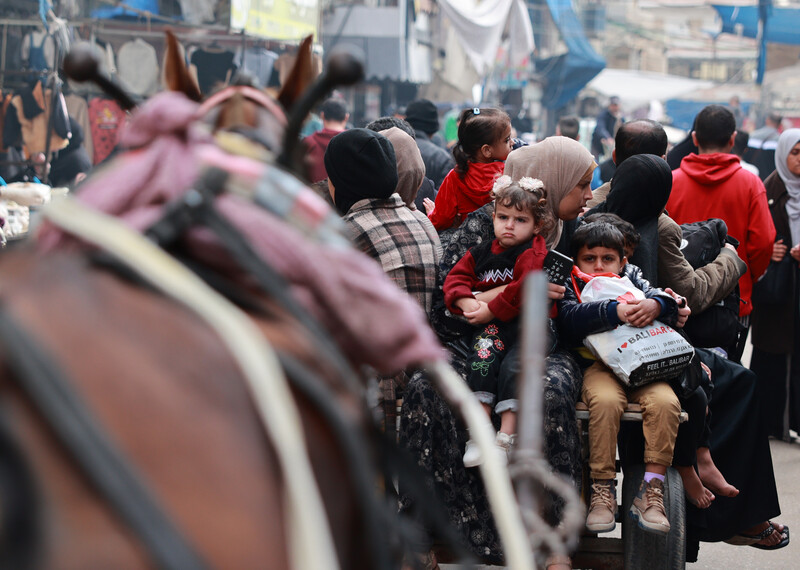The Electronic Intifada 1 December 2023

Streets during the temporary ceasefire are overcrowded with people displaced from thier homes. Here, Nuseirat on 27 November.
APA imagesIn the dark night of 23 November, I couldn’t shake off the fear that the promised truce wouldn’t bring the relief we desperately needed.
Each minute felt endless as I stared at the clock, worrying if I would make it through until Friday morning.
I was staring at the clock as if my life depends on it. It was one of the longest nights I have ever lived.
When 24 November arrived, it brought a moment of relief. After 47 days of nonstop bombings and terrifying experiences, I cautiously stepped outside.
I was able to walk the streets with no fear that I would die at any second. My solitary confinement was finally over.
I found a city I could hardly recognize, full of destruction and the sounds of people in pain.
The city was filled with unfamiliar faces and had become so crowded. Everywhere I went, I found a queue: one for gas, one for water, one for flour.
People would stand in line for days on end.
Every block of residential homes had a destroyed house.
Every single street apparently had some sort of “target” that just had to be bombed.
The air was filled with smoke from cars running on cooking oil. The air was filled with the smell of people trying to cook on open fires to feed their families.
It was hard to take a breath of fresh air. My mom and son suffer from respiratory illnesses, which is exacerbated by polluted air.
People are living in schools, shops, colleges, parks, and even on the streets. The city is so crowded that we step on one another.
Thirty or 40 people are crammed into one shop, their living conditions unbearable. Almost all markets are now closed.
There is no cheese, bread, eggs, coffee, salt, or anything really.
Haunted
My beautiful, peaceful town has become haunted with suffering and misery. They destroyed everything beautiful and turned it into a graveyard.
My daughter had an intestinal infection, and when I went to the clinic, I was astonished by the number of people suffering from intestinal infections. The doctor prescribed her the medicine and told us to look for it in our local pharmacy because the clinic was out of medicine.
I had to visit several pharmacies until I found it.
On 24 November, I passed by groups of people gathering around solar panels to charge their batteries and their phones. I had hoped to feel lighter after a quick walk, but it made me feel heavier.
I thought to myself that I would not be able to go out again until this is over.
That night was the first time I slept without being scared for my life and my family’s safety, a relief we had missed during the 47 days of constant bombing of people in their homes. Finally, I felt safe, even if just for a night.
The difference between that peaceful sleep and the awful days before made me realize how important feeling secure is.
My walk that day also brought home the gravity of the aftermath. The city pulsed with desperation and I couldn’t help but feel the weight of our collective struggle.
Yet, in the midst of this haunting scene, the essence of my once-peaceful town persisted, even if buried beneath the debris of adversity. The once vibrant streets now bear witness to the indomitable spirit of a community navigating the ruins, yearning for the restoration of a life once known.
Sahar Qeshta is a writer in Gaza.





